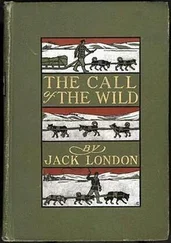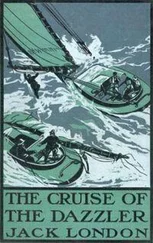Jack London - The Road
Здесь есть возможность читать онлайн «Jack London - The Road» весь текст электронной книги совершенно бесплатно (целиком полную версию без сокращений). В некоторых случаях можно слушать аудио, скачать через торрент в формате fb2 и присутствует краткое содержание. Год выпуска: 1907, Жанр: Классическая проза, на английском языке. Описание произведения, (предисловие) а так же отзывы посетителей доступны на портале библиотеки ЛибКат.
- Название:The Road
- Автор:
- Жанр:
- Год:1907
- ISBN:нет данных
- Рейтинг книги:5 / 5. Голосов: 1
-
Избранное:Добавить в избранное
- Отзывы:
-
Ваша оценка:
- 100
- 1
- 2
- 3
- 4
- 5
The Road: краткое содержание, описание и аннотация
Предлагаем к чтению аннотацию, описание, краткое содержание или предисловие (зависит от того, что написал сам автор книги «The Road»). Если вы не нашли необходимую информацию о книге — напишите в комментариях, мы постараемся отыскать её.
The Road — читать онлайн бесплатно полную книгу (весь текст) целиком
Ниже представлен текст книги, разбитый по страницам. Система сохранения места последней прочитанной страницы, позволяет с удобством читать онлайн бесплатно книгу «The Road», без необходимости каждый раз заново искать на чём Вы остановились. Поставьте закладку, и сможете в любой момент перейти на страницу, на которой закончили чтение.
Интервал:
Закладка:
Last year, while on a lecturing trip, I rode into Des Moines in a Pullman -I don't mean a "side-door Pullman," but the real thing. On the outskirts of the city I saw the old stove-works, and my heart leaped. It was there, at the stove-works, a dozen years before, that the Army lay down and swore a mighty oath that its feet were sore and that it would walk no more. We took possession of the stove-works and told Des Moines that we had come to stay-that we'd walked in, but we'd be blessed if we'd walk out. Des Moines was hospitable, but this was too much of a good thing. Do a little mental arithmetic, gentle reader. Two thousand hoboes, eating three square meals, make six thousand meals per day, forty-two thousand meals per week, or one hundred and sixty-eight thousand meals per shortest month in the calendar. That's going some. We had no money. It was up to Des Moines.
Des Moines was desperate. We lay in camp, made political speeches, held sacred concerts, pulled teeth, played baseball and seven-up, and ate our six thousand meals per day, and Des Moines paid for it. Des Moines pleaded with the railroads, but they were obdurate; they had said we shouldn't ride, and that settled it. To permit us to ride would be to establish a precedent, and there weren't going to be any precedents. And still we went on eating. That was the terrifying factor in the situation. We were bound for Washington, and Des Moines would have had to float municipal bonds to pay all our railroad fares, even at special rates, and if we remained much longer, she'd have to float bonds anyway to feed us.
Then some local genius solved the problem. We wouldn't walk. Very good. We should ride. From Des Moines to Keokuk on the Mississippi flowed the Des Moines River. This particular stretch of river was three hundred miles long. We could ride on it, said the local genius; and, once equipped with floating stock, we could ride on down the Mississippi to the Ohio, and thence up the Ohio, winding up with a short portage over the mountains to Washington.
Des Moines took up a subscription. Public-spirited citizens contributed several thousand dollars. Lumber, rope, nails, and cotton for calking were bought in large quantities, and on the banks of the Des Moines was inaugurated a tremendous era of shipbuilding. Now the Des Moines is a picayune stream, unduly dignified by the appellation of "river." In our spacious western land it would be called a "creek." The oldest inhabitants shook their heads and said we couldn't make it, that there wasn't enough water to float us. Des Moines didn't care, so long as it got rid of us, and we were such well-fed optimists that we didn't care either.
On Wednesday, May 9, 1894, we got under way and started on our colossal picnic. Des Moines had got off pretty easily, and she certainly owes a statue in bronze to the local genius who got her out of her difficulty. True, Des Moines had to pay for our boats; we had eaten sixty-six thousand meals at the stove-works; and we took twelve thousand additional meals along with us in our commissary-as a precaution against famine in the wilds; but then, think what it would have meant if we had remained at Des Moines eleven months instead of eleven days. Also, when we departed, we promised Des Moines we'd come back if the river failed to float us.
It was all very well having twelve thousand meals in the commissary, and no doubt the commissary "ducks" enjoyed them; for the commissary promptly got lost, and my boat, for one, never saw it again. The company formation was hopelessly broken up during the river-trip. In any camp of men there will always be found a certain percentage of shirks, of helpless, of just ordinary, and of hustlers. There were ten men in my boat, and they were the cream of Company L. Every man was a hustler. For two reasons I was included in the ten. First, I was as good a hustler as ever "threw his feet," and next, I was "Sailor Jack." I understood boats and boating. The ten of us forgot the remaining forty men of Company L, and by the time we had missed one meal we promptly forgot the commissary. We were independent. We went down the river "on our own," hustling our "chewin's," beating every boat in the fleet, and, alas that I must say it, sometimes taking possession of the stores the farmer-folk had collected for the Army.
For a good part of the three hundred miles we were from half a day to a day or so in advance of the Army. We had managed to get hold of several American flags. When we approached a small town, or when we saw a group of farmers gathered on the bank, we ran up our flags, called ourselves the "advance boat," and demanded to know what provisions had been collected for the Army. We represented the Army, of course, and the provisions were turned over to us. But there wasn't anything small about us. We never took more than we could get away with. But we did take the cream of everything. For instance, if some philanthropic farmer had donated several dollars' worth of tobacco, we took it. So, also, we took butter and sugar, coffee and canned goods; but when the stores consisted of sacks of beans and flour, or two or three slaughtered steers, we resolutely refrained and went our way, leaving orders to turn such provisions over to the commissary boats whose business was to follow behind us.
My, but the ten of us did live on the fat of the land! For a long time General Kelly vainly tried to head us off. He sent two rowers, in a light, round-bottomed boat, to overtake us and put a stop to our piratical careers. They overtook us all right, but they were two and we were ten. They were empowered by General Kelly to make us prisoners, and they told us so. When we expressed disinclination to become prisoners, they hurried ahead to the next town to invoke the aid of the authorities. We went ashore immediately and cooked an early supper; and under the cloak of darkness we ran by the town and its authorities.
I kept a diary on part of the trip, and as I read it over now I note one persistently recurring phrase, namely, "Living fine." We did live fine. We even disdained to use coffee boiled in water. We made our coffee out of milk, calling the wonderful beverage, if I remember rightly, "pale Vienna."
While we were ahead, skimming the cream, and while the commissary was lost far behind, the main Army, coming along in the middle, starved. This was hard on the Army, I'll allow; but then, the ten of us were individualists. We had initiative and enterprise. We ardently believed that the grub was to the man who got there first, the pale Vienna to the strong. On one stretch the Army went forty-eight hours without grub; and then it arrived at a small village of some three hundred inhabitants, the name of which I do not remember, though I think it was Red Rock. This town, following the practice of all towns through which the Army passed, had appointed a committee of safety. Counting five to a family, Red Rock consisted of sixty households. Her committee of safety was scared stiff by the eruption of two thousand hungry hoboes who lined their boats two and three deep along the river bank. General Kelly was a fair man. He had no intention of working a hardship on the village. He did not expect sixty households to furnish two thousand meals. Besides, the Army had its treasure-chest.
But the committee of safety lost its head. "No encouragement to the invader" was its programme, and when General Kelly wanted to buy food, the committee turned him down. It had nothing to sell; General Kelly's money was "no good" in their burg. And then General Kelly went into action. The bugles blew. The Army left the boats and on top of the bank formed in battle array. The committee was there to see. General Kelly's speech was brief.
"Boys," he said, "when did you eat last?"
"Day before yesterday," they shouted.
"Are you hungry?"
A mighty affirmation from two thousand throats shook the atmosphere. Then General Kelly turned to the committee of safety:-
Читать дальшеИнтервал:
Закладка:
Похожие книги на «The Road»
Представляем Вашему вниманию похожие книги на «The Road» списком для выбора. Мы отобрали схожую по названию и смыслу литературу в надежде предоставить читателям больше вариантов отыскать новые, интересные, ещё непрочитанные произведения.
Обсуждение, отзывы о книге «The Road» и просто собственные мнения читателей. Оставьте ваши комментарии, напишите, что Вы думаете о произведении, его смысле или главных героях. Укажите что конкретно понравилось, а что нет, и почему Вы так считаете.





